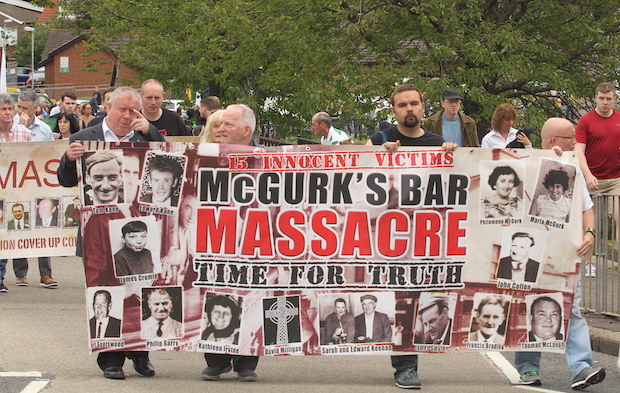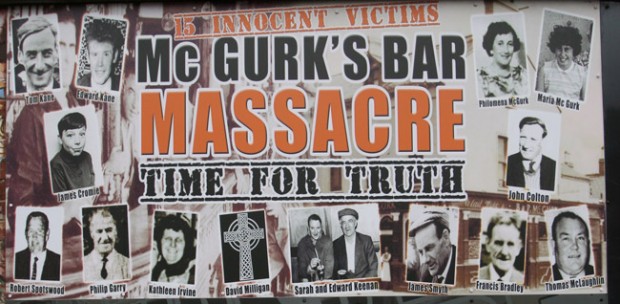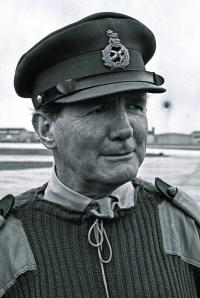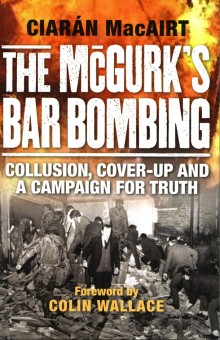3 November 2016
McGurk’s bar bomb – British Army HQ log discovery prompts renewed call for all state files to be opened

A MILITARY LOG from the British Army’s headquarters in the North proves that senior military commanders knew within hours of the explosion at McGurk’s bar that the bomb was left in the doorway of the premises, indicating that loyalists were behind the attack and not the IRA, who was publicly blamed.
At 8:45pm on 4 December 1971, a bomb planted by the unionist Ulster Volunteer Force ripped through the Tramore Bar on the corner of North Queen Street and Great George’s Street, near the nationalist New Lodge Road in north Belfast. The bar was run by Patrick McGurk.
Fifteen men, women and children were to die in the atrocity. The RUC, unionist politicians and the British state were quick to blame the IRA, attributing it to a premature explosion.

The British Army “Log Sheet” just uncovered by researcher and long-time campaigner Ciarán Mac Airt records at 11:10 on 5 December:
“ATO [Ammunition Technical Officer] is convinced bomb was placed in entrance way on ground floor. The area is cratered and clearly was the seat of the explosion. Size of bomb likely to be 40/50lbs.”

Despite this expert knowledge, the RUC, unionist politicians and senior British officers (including overall commander GOC General Harry Tuzo, pictured) peddled the lie that the IRA was responsible for the attack.
Robert McClenaghan, whose grandfather Philip Garry died in the explosion, pointed out to An Phoblacht that as early as 8am, or possibly even earlier on Sunday 5 December, the RUC was engaged in a disinformation campaign, briefing journalists and unionist leaders that the explosion was caused by an IRA device.
McClenaghan says the families are convinced that senior unionist politicians and the RUC determinedly ignored the evidence of the British Army ATO and misrepresented the attack in its propaganda war against the IRA.
The RUC duty officer’s report for the 24 hours ending 8am records:
“Just before the explosion, a man entered the licensed premises and left down a suitcase, presumably to be picked up by a known member of the Provisional IRA. The bomb was intended for use on other premises. Before the ‘pick up’ was made, the bomb exploded.”
Brian Faulkner, the North’s unionist Prime Minister, and Home Affairs Minister John Taylor both repeated and reinforced the RUC version of events.
Faulkner, in a meeting with the British Home Secretary on Monday 6 December asked the RUC to “find out whether anything is known about the associations of the people who were killed or injured”.
Explaining the source of this ground-breaking information, Ciarán Mac Airt, whose grandmother Kathleen Irvine was killed in the attack, said he focused his research on the Headquarters Northern Ireland (HQNI) log for 4 December 1971, the night of the attack. In the few pages released to him through a Freedom of Information (FOI) request, he came across the HQNI log.
The significance of the find has led the families of those killed in the north Belfast bar massacre to renew their calls that all the security files and British Government documents relating to the attack be released to them and their legal team.

For its part, the British Government, through the Information Commissioner’s Office (ICO), is contesting the release of the files. Mac Airt is appealing to the First Tier Tribunal (FTT), which deals with information rights to have the files, which are closed for 84 years, to be released.
That appeal is to be heard on 8/9 December – just days after the 45th anniversary of the bomb attack.
Ciarán Mac Airt said:
“The relevant section, quoting the ATO, noted ‘Not for PR’, so it was not to be made public.
“As we buried our loved ones, the British state buried the truth.”
The families are now demanding that the PSNI quashes the Historical Enquiries Team report into the bombing and they want a fresh inquest into the killings.
Follow us on Facebook
An Phoblacht on Twitter
Uncomfortable Conversations

An initiative for dialogue
for reconciliation
— — — — — — —
Contributions from key figures in the churches, academia and wider civic society as well as senior republican figures





